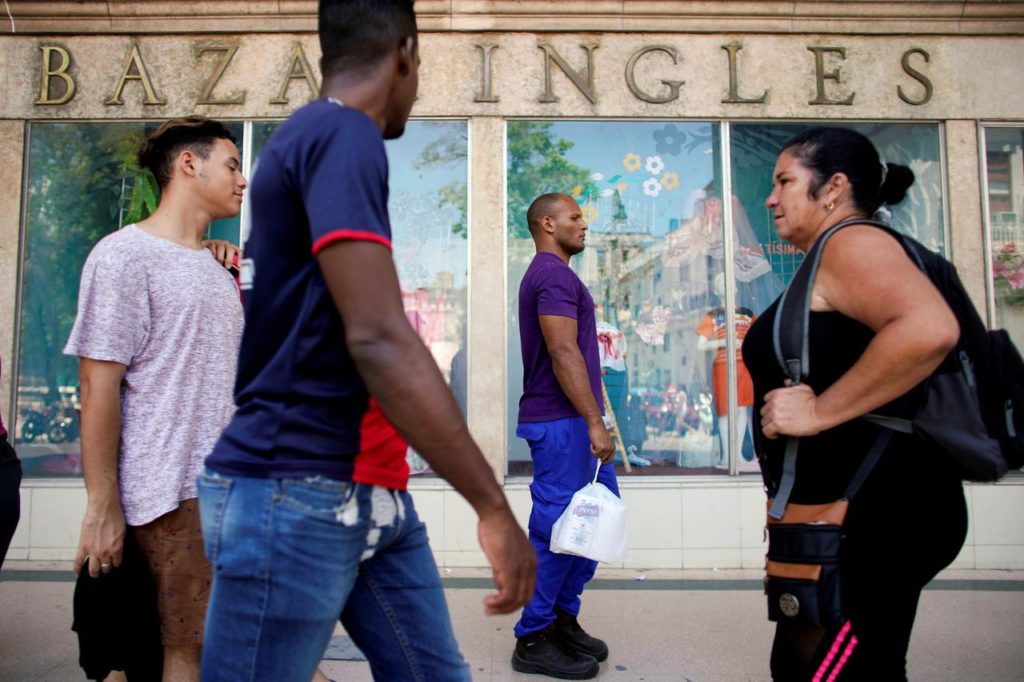HAVANA — Communist-run Cuba put on a brave face Saturday at a mid-year session of the National Assembly, the government insisting it would not let a growing financial crisis and mounting pressure from the administration of President Donald Trump thwart development.
Cuban President Miguel Diaz-Canel said upon closing the meeting on Saturday that a series of emergency measures announced this month aimed to stimulate domestic production and he hoped for slight growth this year.
“Even in the eye of the hurricane of adversity that the enemy conceived to suffocate us, the Cuban economy can grow slightly, thanks to the fact that we have the potential to resist and continue advancing in our development,” he said, referring to the measures.
Diaz-Canel said the economy grew 2.2 percent in 2018, compared with an earlier estimate of 1.2 percent, and that stronger base would make it harder to reach this year’s goal of 1.5 percent growth.
He gave no figure for the first half of this year, when some European diplomats believe the economy went into recession.
The emergency measures include salary and pension raises for at least two million civil servants and pensioners, along with efforts to financially stimulate state-run businesses and municipal level output to meet the increased annual demand of more than eight billion pesos the raises will generate.
Cuban economist Ricardo Torres termed the measures positive because they “indicate that the government intends to go beyond the condemnation of the United States and become more proactive.”
At the same time, Torres said “price controls that will accompany the raises in hopes of blunting inflation show the government is still relying on administrative versus financial and market mechanisms.”
MIRED IN STAGNATION
The measures come at a time when falling imports have caused scattered shortages of food, hygiene and other products across the country.
Diaz-Canel admitted the country was suffering from a liquidity crisis and bureaucracy and was short on fuel. He called on officials and the public to join together in the national emergency and each do their part to move the country forward.
“Putting aside vanities and selfishness, practicing honesty, industriousness and decency, we will also be contributing to GDP,” he said.
Cuba has been mired in stagnation and its trade has steadily fallen since 2014 as oil producer and ally Venezuela succumbed to falling oil prices combined with its own errors and U.S. sanctions, depriving the island of fuel and cash in exchange for medical and other assistance.
The government began falling behind on payments to foreign suppliers and joint venture partners in 2015 and had hoped a boom in tourism and investment during a brief detente with the United States under Barack Obama would continue and help overcome financial difficulties.
But the Trump administration quickly made clear it would dismantle detente and since October, expressing fury over Cuba’s close ties with crisis-racked and sanctioned Venezuela, has targeted Cuban tourism, investment and the fuel supply.
The administration has sanctioned more than 100 Cuban companies, imposed stricter travel restrictions on its citizens and put into effect a 1996 law, suspended by its predecessors, that allows Cuban-Americans to sue foreign companies and individuals deemed to be trafficking in properties nationalized after the 1959 Revolution.
It has also imposed sanctions on any company or ship involved in carrying Venezuelan fuel to Cuba.
–REUTERS
Reporting by Marc Frank; Additional reporting by Nelson Acosta; Editing by Andrea Ricci
Our Standards:The Thomson Reuters Trust Principles.

